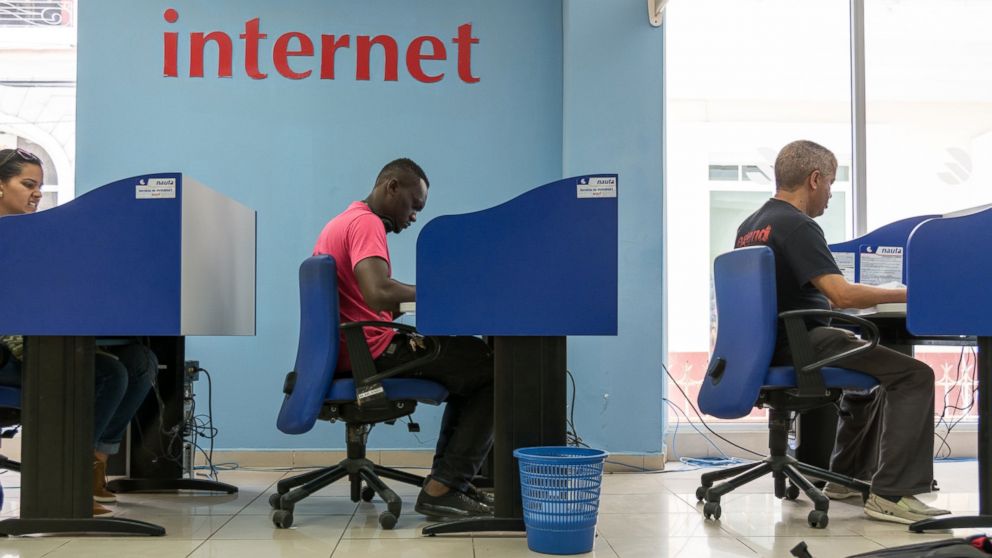This Is What It’s Like Using the Internet in Cuba
— -- The Internet in Cuba is bad -- really, really bad.
Imagine you are back in 2001 and set your computer up to download one, single song off Napster while you are at school all day. It's that kind of bad.
I just got back from Cuba for ABC News’ continuing coverage following the announcement of the renewal of diplomatic relations between the U.S. and the island nation. One of the first things I expected to see changed, even before the embargo gets lifted, was Internet access.
Just to illustrate how bad it seems for an American used to fast connectivity: I was uploading a photo to send to our digital team -- a beautiful photo of the historic city we wanted to use for one of our digital stories. The file was around 30 MB. It took nearly an hour to upload it to Google Drive.
When I returned home, that same file took less than five seconds to upload.
It’s no surprise Cuba is considered the “least connected” country in the Americas, with the Geneva-based ITU ranking the country 125th out of 166 countries worldwide in telecommunications development.
But officials want to change that. With the new U.S. diplomatic relations working toward normalization, a senior U.S. State Department official told members of the media on Monday that Cuba has "real potential" and that, as a member of the United Nations International Communications Union, wants to see 50 percent of households have Internet access by 2020.
“There is real potential here as long as there is a will on the Cuban side,” the official said. "So as long as the Cubans create an environment that's attractive to investment and attractive to deployment and attractive to the delivery of services, I believe that services will reach the island."
In early March, executives from Google visited Cuba for the second time.
Currently, roughly 5 percent of Cubans can access the Internet from home. The only way to get Internet access for most Cubans is to visit a government-run Internet location and pay $5 per hour -- prohibitively expensive for most in the island nation. Those who can afford it often wait for hours to gain access to one of the government-run sites.
The U.S. sent a delegation to Cuba to discuss telecommunications as part of the talks last week. And President Obama announced connectivity as a priority, naming telecommunications equipment, technology and services among the first exemptions to the embargo.
While Internet connectivity moves forward slowly, this American reporter is most looking forward to Internet on a cell phone -- you know, being able to read email on the iPhone.
Hopefully, by the time we go back next month, Internet speeds will be a little better. Probably not, but here is looking to the future.
ABC News’ Katelyn Marmon contributed to this report.




